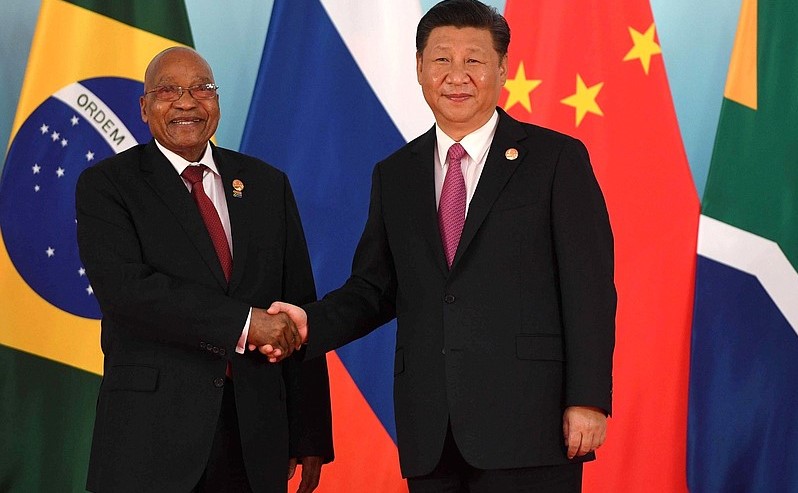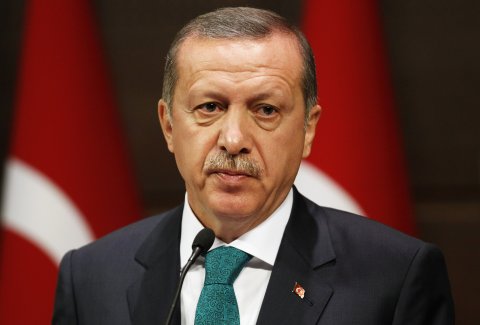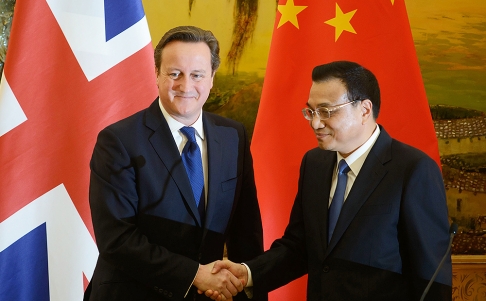French newspaper, Le Monde, has reported that China has been spying on the African Union (AU) for five years. The AU has allegedly known about this for at least a year, and other than removing the recording devices, done nothing publicly. It may seem surprising that African countries would not react to this obvious breach of privacy but, given the continent’s history and expectation of the behaviour of larger powers, the AU’s lack of reaction is not surprising at all.
Though China, almost certainly, will not be taken to task over this incident of interference, they do need to be careful to avoid other incidents like this one in future. China is most of Africa’s largest foreign investor but individual countries on the continent could start to grow suspicious and look for partners elsewhere.
Beijing funded the building of the AU’s headquarters in Addis Ababa and a Chinese company constructed the $200m building,within which the spying is said to have taken place. Beijing was able to listen in using the Chinese telecoms system that was being used and according to Le Monde, the data gathered from the AU servers was being sent to China between midnight and 02:00. The AU has reportedly acquired its own servers since the breach and now encrypts all its electronic communication. The AU discovered the breach a year ago but did not respond, this could be for two main reasons: the first is simply economic and the second is due to perception.
Beijing has vehemently denied the allegations of spying. Kuang Weilin, the Chinese ambassador to the AU, told reporters in Ethiopia that these claims are “absurd,” though did concede that this accusation could strain relations between Beijing and the AU.
China is the major investor across Africa, having financed 15.5% of construction projects in 2017- more than any other country. At least 10 000 Chinese companies are active in Africa at the moment and Chinese companies have built much of the road and rail infrastructure across the continent.
The benefits of Chinese investment in Africa to African leaders has prompted many countries to shift their focus eastwards, and gestures of both symbolic and economic value have been made by African countries to remain on good terms with Beijing. Zimbabwe’s former president, Robert Mugabe, pledged that Zimbabwe would adopt the yuan and, despite criticism, South Africa has denied the Dali Lama a visa to the country three times.
Africa as a continent has been rewarded for their cooperation with Beijing, China has recently finalized deals that would see them building and financing parliament buildings in Zimbabwe, and the Republic of Congo. These parliament buildings will add to the parliament buildings they have completed in Malawi, Seychelles, Guinea-Bissau, and Lesotho. The amount of money involved in these projects make it difficult to turn their backs on deals with China, even if all of these buildings could be compromised.
Other than the obvious economic benefit of a close relationship with Beijing, the AU could have another reason for sticking with China; many African nations do not trust western powers. European and North American powers have a spotty history when it comes to Africa, from colonization and the support of dictators, to intentional destabilization, so it is easy to see why there is a lot of suspicion surrounding the West.
As far as spying goes, it is easy to see how the AU could view it as the price of doing business with larger powers. Le Monde also reported that both British and French intelligence services have previously targeted the AU for espionage. Indeed, America was even accused of spying on its ally Germany in 2015.
It is unlikely but, the tide could turn on China with on African diplomat noting that there “would be a lot of anger over this,” and that “this is not the sort of thing Africans will entertain and take lightly.” Breaches such as this one, as well as accusations of Chinese involvement in the coup d’etat that saw president Robert Mugabe ousted from power are troubling for African leaders. Indeed, the relationship between Botswana and China has been put under strain since China tried to pressure the country with the highest GDP per capita on the continent to not allow the Dalai Lama entrance in 2017. Though the Dalai Lama did not make it to Botswana, Botswana was unhappy with China’s attempts to dictate who they did and did not allow to enter their country.
The current Botswana president, Ian Khama, has started to sever ties with China. According to, the former president of Botswana, Festus Mogae- the current government has expelled more than 2000 foreign professionals over the last six years. Many of these professionals were Chinese. Khama has complained of massive Chinese immigration into the country and has made it much more difficult for Chinese nationals to get visas to enter Botswana.
Khama has also criticised Chinese workmanship on the mega-projects which they have done in the country. In 2013, he told a South African Newspaper that the government would be more discerning with who it contracted for large construction projects. To prove this, he awarded the Kazungula Bridge project to Daewoo Engineering and Construction, a South Korean company, even though China Major Bridge Engineering Corporation put in a lower bid for the project. It is important to note that Botswana is not a major economic player in Africa, though a bilateral trade agreement with them is convenient for China – it is not the only way for China to access Southern Africa. For Botswana’s opposition to China to threaten China in any way, other, bigger, African nations will have to take the same track.
Though Beijing was spying on the AU, their lack of response over the last year has proven that this is not enough of an issue to put a significant strain on the relationship with the continent’s biggest investor. While some voices have spoken up their opposition to some of the practices of the Chinese government and businesses operating throughout Africa, there is not nearly enough opposition for there to be any change in continental policy towards their biggest investor.
Photo: President of South African Republic Jacob Zuma and President of the People’s Republic of China Xi Jinping before the beginning of the BRICS Leaders’ meeting. Via: President of Russia
Disclaimer: Any views or opinions expressed in articles are solely those of the authors
and do not necessarily represent the views of the NATO Association of Canada.




